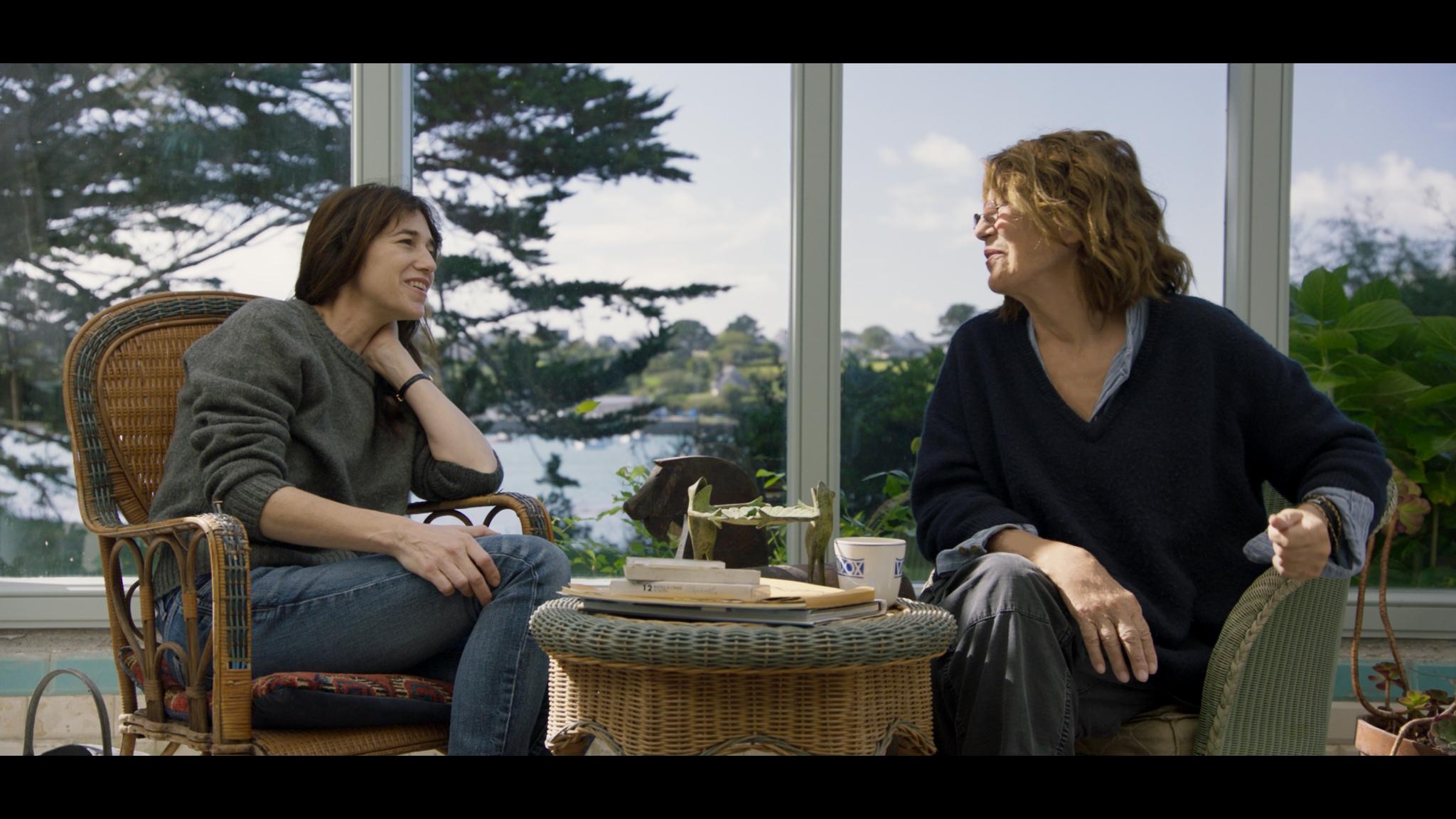Charlotte Gainsbourg's Jane By Charlotte turns home movies into a character study
Gainsbourg's directorial debut interrogates family history while examining her relationship with her mother—model, actor, and musician Jane Birkin

In terms of France’s pop culture royalty, there are few families with as much history as Charlotte Gainsbourg’s. Her mother Jane Birkin was a model, actor, and musician, and the namesake of a must-have handbag for women across the globe; her father Serge was one of the world’s most popular and influential musicians, a libertine and provocateur who has gone on to be one of the country’s most beloved figures. She’s one of four children born to three of Serge’s partners, and has two siblings through her mother including her late half-sister Kate Barry, and fellow actor, artist, and model Lou Doillon. And then of course on her own she’s become an award-winning actress working with many of the world’s most acclaimed filmmakers, and a musician who’s collaborated with the likes of Beck, Jarvis Cocker, and Air, while having three children of her own.
The enormity of the Gainsbourg legacy undoubtedly hangs heavy over Gainsbourg’s identity and accomplishments, but in Jane By Charlotte, she offers a shaggy, delightfully intimate portrait of her relationship with Birkin, who’s now in her 70s. Loosely covering a period from early 2020 to the isolated days of the pandemic, Gainsbourg works both behind and in front of the camera to gain new perspectives on Birkin, her life before and during Gainsbourg’s birth, and their ongoing relationship as a part of this eclectic clan. Whether or not the film necessarily works as a narrative feature, Gainsbourg manages to peer inside her mother’s life and lifestyle with an honesty that should make audiences nervous and envious at the same time, seeking answers we may want from our parents but are afraid of enough to be reluctant to ask.
Truth be told, it’s difficult to know exactly what to expect from any sort of film focusing on this family, which is why it was probably difficult for Gainsbourg to know where to start. Serge Gainsbourg was such a force of nature that even someone with the star wattage and success of Birkin cannot help but at least slightly be eclipsed by him. Here, Gainsbourg simply follows her mother through the creative excursion of a duet during Birkin’s stop in New York on a tour to perform many of the songs Serge wrote and produced for her, and then employs Birkin as a muse, confidante, and interview subject whose answers she seems to be recording both for her own posterity and to fill in some of the blanks that remain in their collective family history.
Opening with just a two-person conversation in which director and subject gingerly interrogate one another about body language and learned behaviors, Gainsbourg’s film more fully begins to bloom as they visit Birkin’s seaside cottage, travel to New York for rehearsals, and finally, receive a walking tour of Serge’s storied Parisian home, which Gainsbourg decided to open to the public as a museum. Birkin and Gainsbourg both talk about the traditions they inherited, relationships such as Jane’s first marriage to composer John Barry and how they affected her confidence and self-image, the questionable parenting choices Birkin made during Gainsbourg’s childhood for which she is fearlessly (but not unapologetically) candid, and the many losses and opportunities—the last of which for Birkin is simply aging (or more accurately, feeling as if she no longer retains her beauty) after a full life—for which there is a complicated mix of satisfaction, regret, and determination to go on.
It’s the kind of film that offers up a lot of audience reflection almost as much or more than what comes off of the screen from Gainsbourg and Birkin, as they document the niggling queries and lingering uncertainties that many people never get to ask their parents. While it’s a great keepsake and character study for the daughter of her mother, Jane By Charlotte might have benefited from a slightly stronger spine of a timeline, whether that’s living through the pandemic (which may very well have scuttled an intended timeline) or tracing the incredible accomplishments of Birkin in her life and career and more directly reckoning with the way they will forever be intertwined with Serge’s.
Ultimately, it’s unfair to expect one thing—or even a few specific things— from any depiction or chronicle of the Gainsbourg clan, which is not only why one of this film’s great virtues is its specificity, but why a definitive portrait has yet to be made about all of them. Nevertheless, Gainsbourg’s directorial debut offers so many beautiful, intimate moments of connection between her and Birkin, whether they’re lying in bed next to one another talking about sleep, drug use, and celebrity, or drinking wine at a picnic table by the sea. Jane By Charlotte captures the conversation that we wish we could have with our own parents, projected against the backdrop of one of the most famous families in the world; so even if it doesn’t contain everything we want to know about the latter, it remains a singular window into the former, a way both of better understanding an individual, formative relationship and reframing the very public iconography of multiple generations of Gainsbourgs.